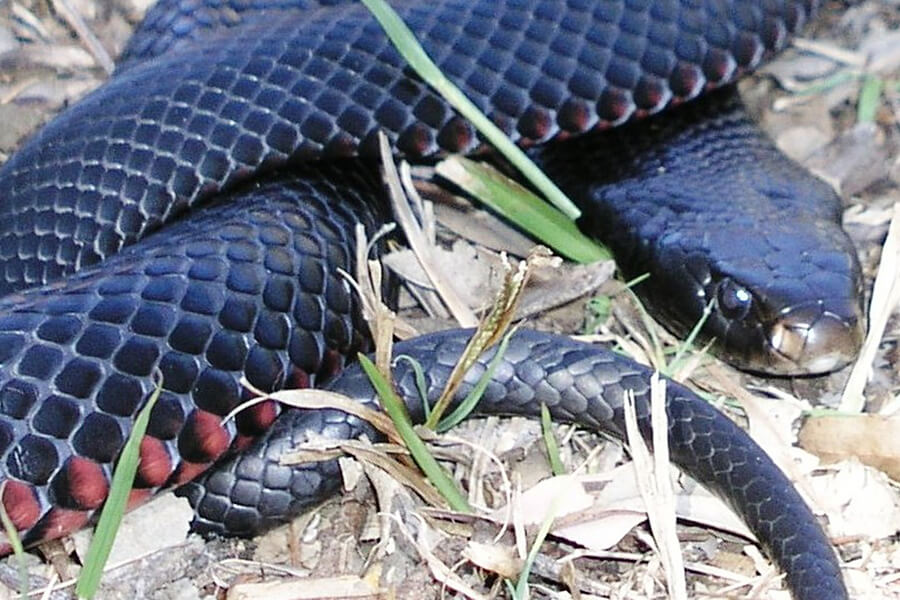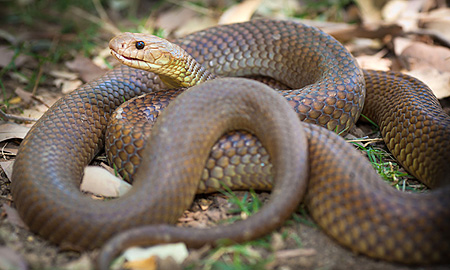Introduction
Tiger serpents (Notechis scutatus) are amongst one of the most interesting yet feared reptiles discovered in Australia. With their striking appearance and powerful poison, these serpents stimulate a combination of wonder and care. Observing tiger serpents in their natural surroundings can be an electrifying experience for nature lovers, wild animals digital photographers, and scientists alike. Nonetheless, it's important to approach this venture with regard for the pet's habitat and an understanding of safety measures to prevent snake bites.
In this thorough guide, we'll check out how to securely observe tiger serpents in their all-natural environment. We will cover subjects varying from understanding their habits and habitats to first aid for serpent attacks-- furnishing you with knowledge to boost your experience while minimizing risks.

What is a Tiger Snake?
Tiger serpents are extremely poisonous serpents native to Australia, specifically Tasmania and seaside areas. They are recognized for their distinct banded coloration looking like a tiger's stripes, which can range from yellowish-brown to dark brown and even black.
Physical Characteristics
Tiger serpents are tool to large-sized serpents that can mature to 2 meters long. Their bodies are robust, and they have a wide head that is clearly bigger than their necks.
Habitat Preferences of Tiger Snakes
These reptiles commonly live in wetlands, tidewaters, and seaside areas however can also be located near freshwater resources like rivers and lakes. Comprehending where these snakes live is critical for any person looking to observe them safely.
Understanding Tiger Snake Behavior
Are Tiger Snakes Venomous?
Yes, tiger snakes are amongst one of the most poisonous snake species around the world. Their poison has neurotoxins that can bring about severe clinical issues if bitten.
Behavioral Traits
Tiger snakes are typically reluctant animals; they like to stay clear of human communication. Nevertheless, they can become aggressive if intimidated or collared.
Where Can You Discover Tiger Snakes?
Tiger Serpent Habitat Exploration
To safely observe tiger snakes in their natural environment, it's crucial initially to identify where https://skillstrainingcollege.com.au/snake-bite-first-aid-in-australia/ they prosper. They have a tendency to favor:
- Coastal marshlands Mangroves Swamps Riverbanks
Best Places for Observation
Some recommended places consist of:
- Tasmanian wetlands The shorelines of southern Australia National parks with water bodies
Safety Safety measures Before Observing Tiger Snakes
Understanding the Dangers of a Tiger Snake Bite
Although experiences with tiger serpents can be thrilling, understanding the threats involved is critical:
Recognize signs of a snake bite: swelling at the website, discomfort emitting from the bite area. Know emergency situation get in touches with: Familiarize yourself with neighborhood emergency services. Carry a first-aid package especially geared up for snake bites.First Help for Serpent Bites: What You Need to Know
Knowing what actions to take if bitten might save your life or another person's:
- Stay tranquility; motion boosts venom spread. Call for clinical aid immediately. Do not apply ice or attempt suctioning.
How to Securely Observe Tiger Snakes in Their Natural Habitat
When you make a decision to observe tiger serpents in the wild:

Equipment Required for Observation
Essential Gear Checklist
- Binoculars First-aid kit specifically made for snake bites Field manual on Australian reptiles Camera (with zoom capacity)
Snake Bite Emergency treatment Kit Essentials
A well-appointed emergency treatment package ought to include:|Thing|Purpose|| -------------------------------|-------------------------------|| Compression bandage|To debilitate the affected area|| Antihistamines|For allergies|| Emergency call numbers|Quick accessibility throughout emergency situations|
Interpreting Tiger Snake Signals
Understanding just how tiger snakes interact through body language assists observers determine when it's risk-free or risky:

Common Behaviors
Defensive stance: If curled or elevated off the ground. Retreating habits: When they slowly back away from potential threats. get more infoDealing With Potential Encounters
Even with preventative measures taken, an encounter may still occur during your observation journey:
Remain calm; panicking only heightens risks. Slowly retreat without transforming your back on the snake. Make your presence understood vocally however stay clear of abrupt movements.Frequently Asked Inquiries Regarding Tiger Snakes
1. What must I do if I see a tiger snake?
Remain calm; observe from a distance without troubling it.
2. Are infant tiger snakes dangerous?
Yes, adolescent tiger serpents are born poisonous What are the most venomous snakes in Australia and may pose risks comparable to grownups in spite of being smaller.
3. Exactly how usual are tiger snake bites?
While occurrences happen annually in Australia, fatalities are unusual because of timely treatment availability.
4. Can I maintain a tiger snake as a pet?
Keeping wild tiger snakes as family pets is illegal in lots of areas due to conservation laws.
5. What does a tiger snake bite appearance like?
Bite marks normally reveal two puncture injuries along with local swelling and discoloration.
6. Exactly how efficient is antivenom?
Antivenom therapy is extremely efficient when provided timely after a bite.
Conclusion
Observing tiger snakes in their natural environment supplies a thrilling possibility for wildlife fans however must be approached with care and regard for both the creature and its environment. By arming on your own with knowledge about these interesting reptiles-- including recognizing their behaviors and safety measures-- you can appreciate memorable experiences while significantly reducing threats related to encounters.
In summary, constantly prioritize safety and security by preparing properly before embarking on any type of wild animals monitoring expedition-- particularly when handling a few of nature's most poisonous creatures like the tiger snake!